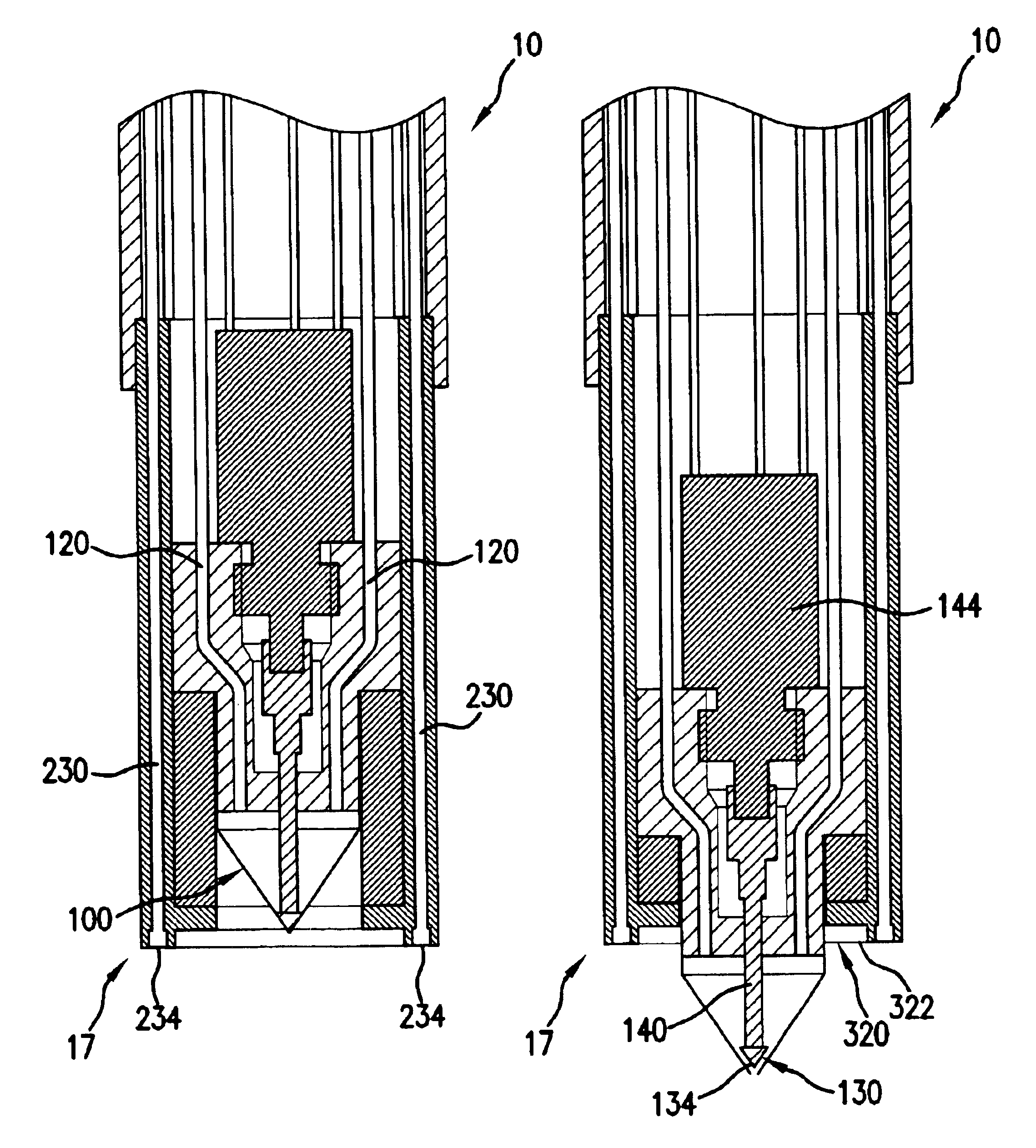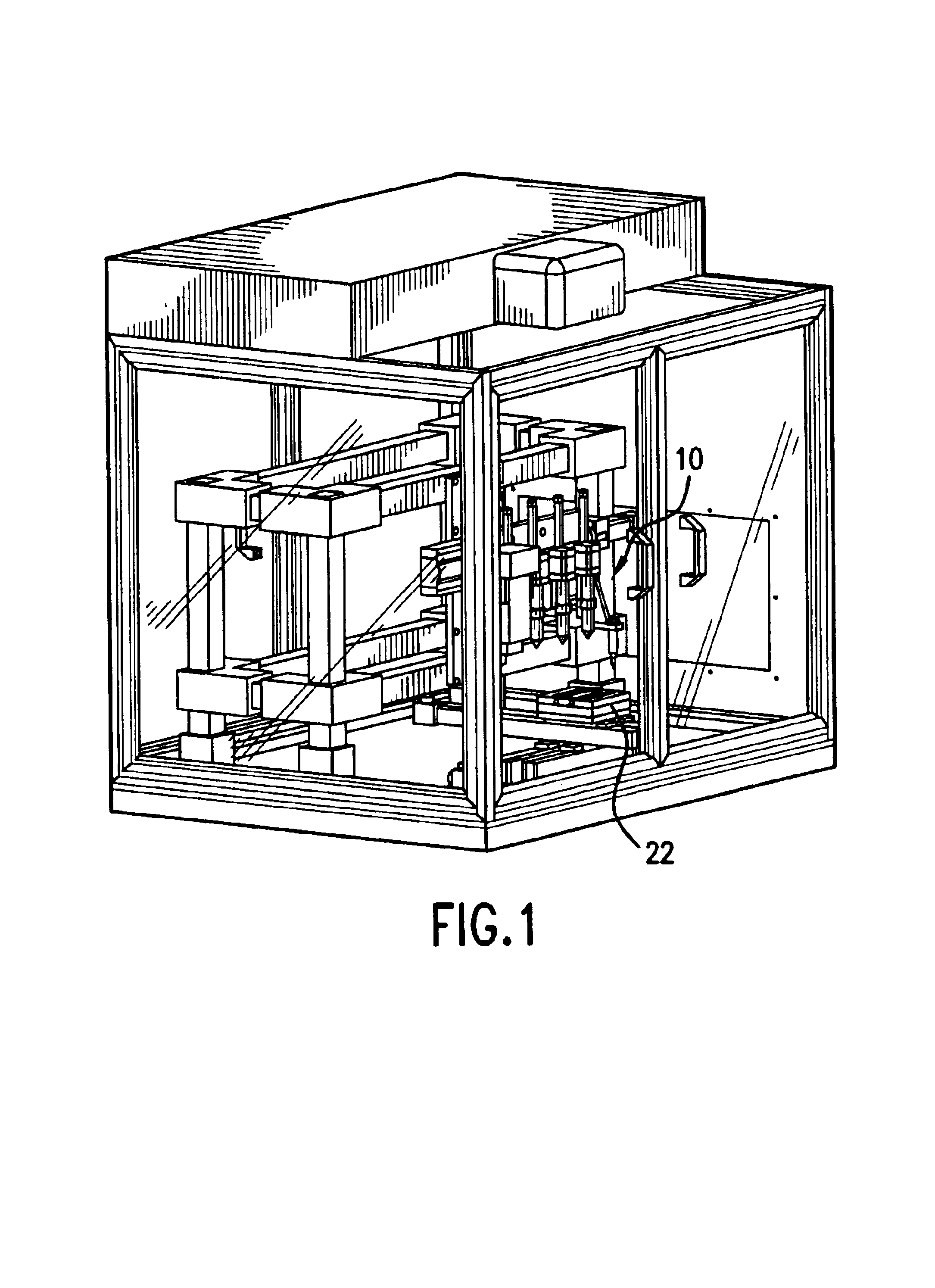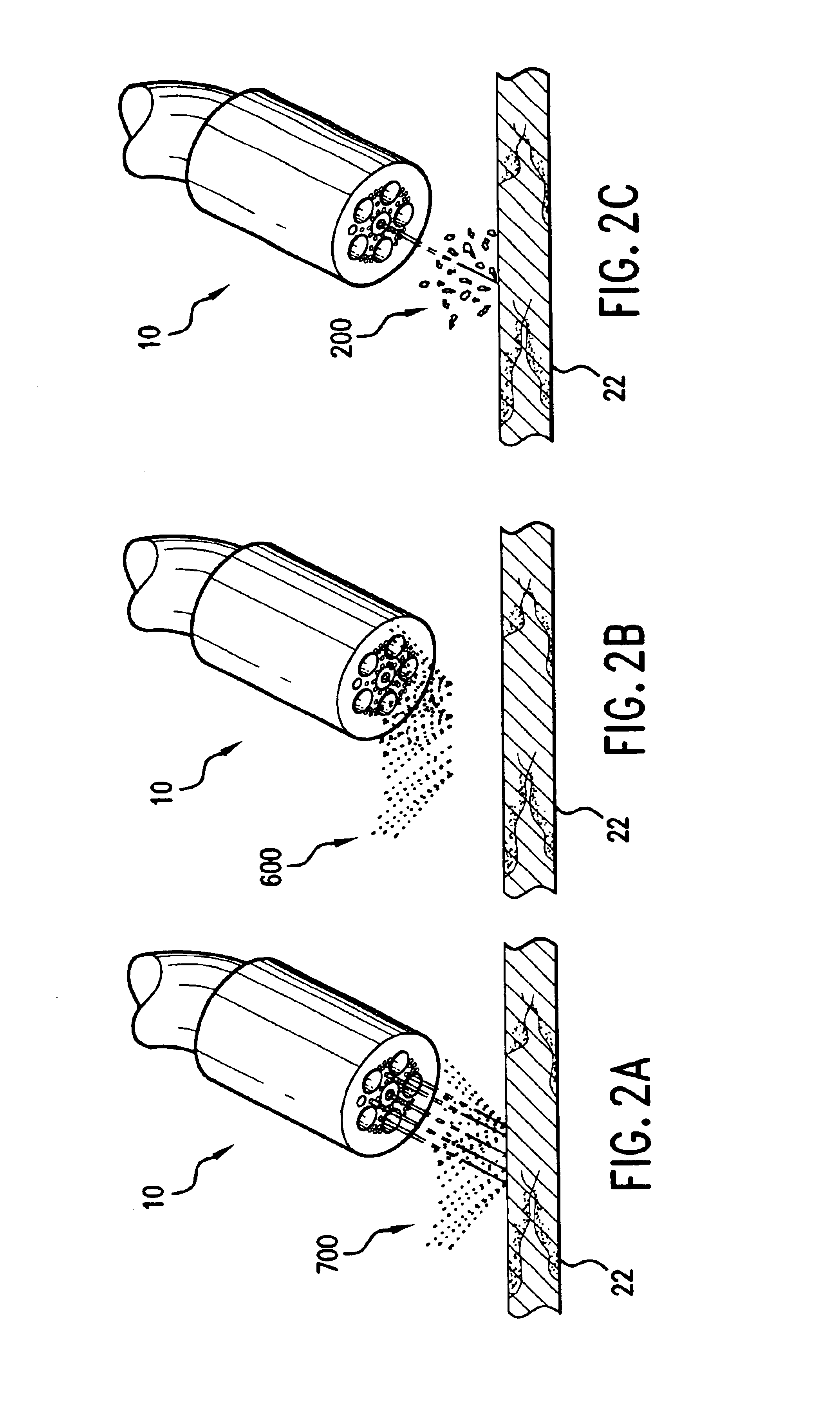Architecture tool and methods of use
- Summary
- Abstract
- Description
- Claims
- Application Information
AI Technical Summary
Benefits of technology
Problems solved by technology
Method used
Image
Examples
Embodiment Construction
[0055]The present invention is more particularly described in the following examples that are intended as illustrative only since numerous modifications and variations therein may be apparent to those skilled in the art. As used in the specification and in the claims, “a,”“an,” and “the” can mean one or more, depending upon the context in which it is used. Several aspects of the present invention are now described with reference to the figures, in which like numbers indicate like parts throughout the figures.
[0056]For convenience, abbreviations and symbols used throughout this specification are set forth in the following Tables 1 and 2.
[0057]
TABLE 1ABBREVIATIONS2D, 3DN Dimensions, -DimensionalAFAutofluorescenceBCGFB-Cell Growth FactorCADComputer Aided DesignCAMComputer Aided ManufacturingCCDCharge-Coupled DeviceCFDComputational Fluid DynamicsCMUCarnegie Mellon UniversityCRTCathode Ray TubeCSFColony Stimulating FactorCTComputerized TomographyCTGFConnective Tissue Growth FactorCWConti...
PUM
 Login to View More
Login to View More Abstract
Description
Claims
Application Information
 Login to View More
Login to View More - R&D
- Intellectual Property
- Life Sciences
- Materials
- Tech Scout
- Unparalleled Data Quality
- Higher Quality Content
- 60% Fewer Hallucinations
Browse by: Latest US Patents, China's latest patents, Technical Efficacy Thesaurus, Application Domain, Technology Topic, Popular Technical Reports.
© 2025 PatSnap. All rights reserved.Legal|Privacy policy|Modern Slavery Act Transparency Statement|Sitemap|About US| Contact US: help@patsnap.com



